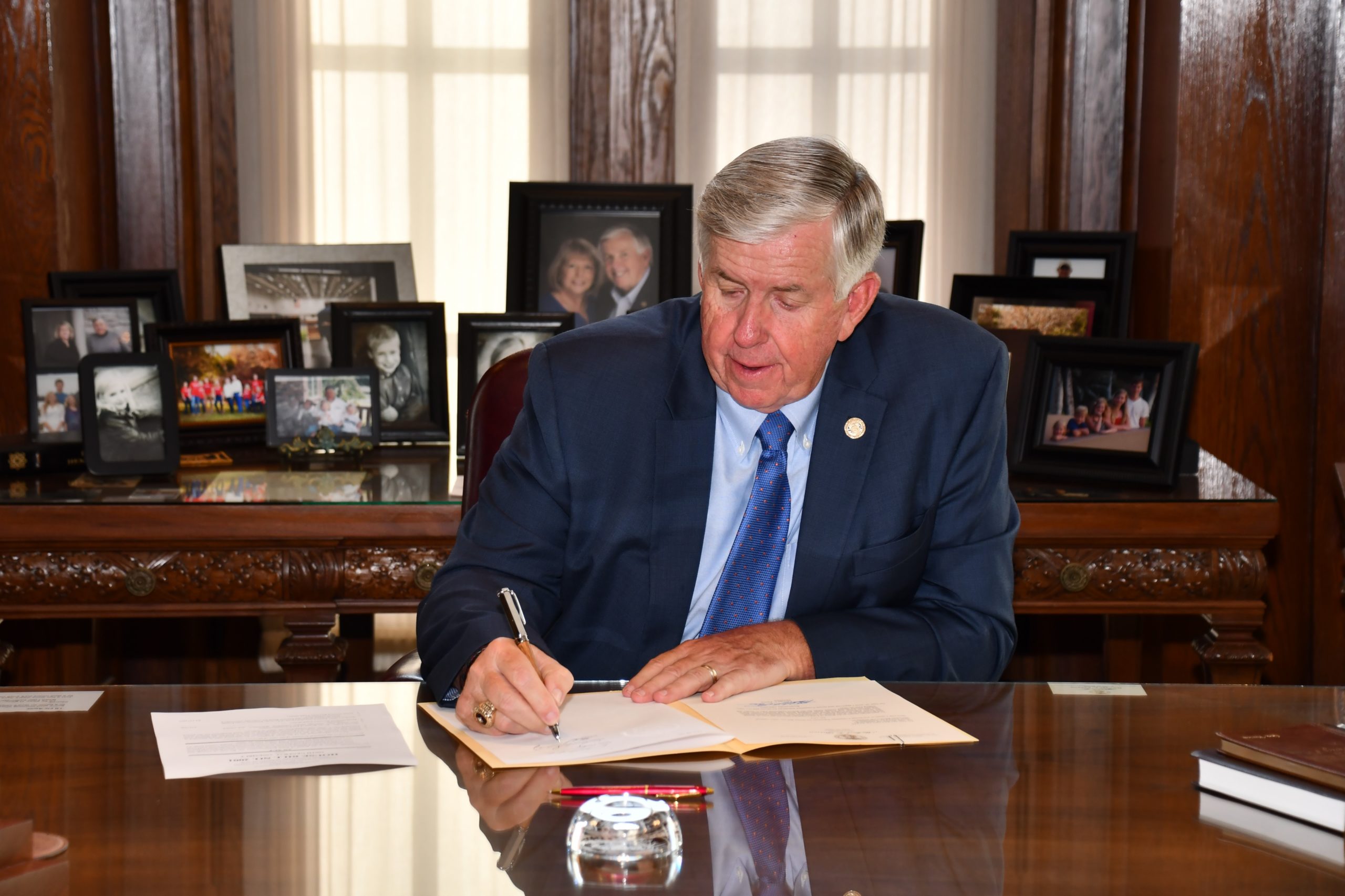JEFFERSON CITY, Mo. — It was veto day Friday as Gov. Mike Parson took the ax to several bills.
With nearly 70 bills passed by the legislature this year and dozens already signed, four bills were rejected by the state’s chief executive as well as some budget line items.
Lawmakers will return in September to assess Parson’s vetoes. From transportation to government transparency, here’s a look at the bills and why they were vetoed.
Emissions testing
Rep. Becky Ruth’s HB 661 would have made several changes to the state’s transportation laws, including ending federally mandated emissions testing for Jefferson, Franklin, and St. Charles counties. Parson said the change could violate the federal Clean Air Act and cause Missouri to lose $52 million annually in federal funding for highway projects in St. Louis.
Parson pointed to several other reasons for his veto, including a “legally problematic” section allowing the Joint Committee on Transportation to regulate towing rates, complaints, and investigations — a change he said would fail to provide adequate due-process protections for towing companies.
Parson also opposed language requiring the publication of engineers’ construction estimates. He said that would endanger state revenue and infrastructure as a whole.
Sunshine laws, Child Advocate program
Rep. Bruce DeGroot’s HB 362 would have established the Government Lending Transparency Act, altering Missouri’s Sunshine Law by requiring agencies to file annual reports on lending and credit programs. Parson applauded the attempt to increase government transparency but said state law already accounted for it.
“The auditor has sufficient authority under the constriction of the state of Missouri and existing state statute to ensure state funds are properly accounted for and make reports to the General Assembly,” Parson said.
He also noted the bill’s effective date of Aug. 28 “places an impractical timeline” for agencies, as the reporting deadline in the bill was set at Aug. 30.
Another provision would have created a new program allowing the Office of Child Advocate (OCA) to receive and investigate reports of safety concerns from the Department of Social Services Children’s Division. Parson said the expansion of the OCA’s authority would undermine existing administrative processes and duplicate the work of juvenile officers and local judges without strengthening protection for children.
Reading through the veto letters, I want to recognize the work of the Office of the Child Advocate (OCA). Thank you. They step in when our child welfare system has failed. They are a trusted partner helping keep kids safe and holding people accountable when it hasn’t.
— MaryElizabethColeman (@meaccoleman) July 9, 2021
Additionally, the bill would have allowed public governmental bodies to close requests for open records when someone fails to provide payment for the records. Parson pointed to a recent Missouri Supreme Court decision regarding governmental entities from placing certain conditions on Sunshine Law requests.
Parson said he was supportive of the bill’s attempt to add a 30-day window for fees to be paid before records requests are closed and would work with the General Assembly on that provision in the future.
Taxes
SB 226, sponsored by Sen. Andrew Koenig, would have modified several tax filing deadlines. In his veto letter, Parson said the bill was rejected in part due to language providing a tax credit to businesses affected by “overly intrusive health measures,” language the governor said was too broad and could fail to benefit the small local businesses that the bill was meant to help.
Parson also said the bill singled out entertainment venues with a benefit not provided to other industries impacted by COVID-19. He noted the U.S. Small Business Administration already has a unique grant assistance program in place for entertainment venues to aid with pandemic-related losses.
The “most troubling section” of the bill would have allowed private businesses to keep sales and use taxes, allowing businesses to control funds taxpayers may have thought were going toward public services, Parson said. This section “does not broadly serve Missouri’s interests,” the governor said.
Elections
Parson vetoed Rep. Jason Chipman’s HB 685, which would have standardized the age requirement for various county-level offices and district board memberships at 21 years old.
Parson said he disagreed with a provision requiring registered lobbyists holding or seeking to hold a municipal or school district office to maintain their candidate committees — a move that could lead to future exemptions or conflicts of interest.
“This change would also only affect a few select individuals. I do not believe that such special laws, which are designed to benefit a few, should guide our state policy,” Parson said.
Parson said he supported a myriad of other sections of the bill — which were already included in HB 271 signed last month.
Budget
Parson vetoed nearly $115 million from this year’s operating budget, including performance incentives for state employees, a deferred maintenance fund for charter schools, and $24 million earmarked to increase pay rates for Department of Mental Health employees. The legislature signed off on its budget the week before the end of the regular session.

Cameron Gerber studied journalism at Lincoln University. Prior to Lincoln, he earned an associate’s degree from State Fair Community College. Cameron is a native of Eldon, Missouri.
Contact Cameron at cameron@themissouritimes.com.











































